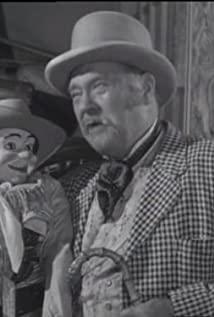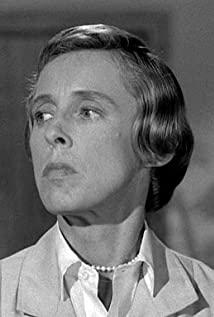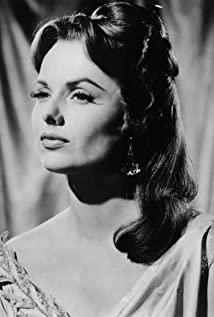Both films seem to strictly abide by the rules of the love type in the narrative texts, and in the plot mode they all choose the classic text of "Cinderella" in the same way. Frankfurt theorists refer to the typification caused by the cultural industry as "through the broad new mythology of classlessness, it strongly aided the process of incorporating the working class, and more closely combined the working class with the belief in getting rich." "This sentence acquiesced in the ideological bourgeois stance and middle-class morality of Hollywood movies. Based on the guidance of this theory, can we examine the class stance of the two films and dig out the different ways and directions of their ideological operations from the narrative.
Both films are about a lower-class female, how to combine with middle-class males. The decisive event was that they were molded, which led to a change in identity. The change of identity caused them to enter the life of the middle class. The mobility of this identity is considered by cultural scholars to be a characteristic of the class system of most industrial societies. However, what we need to examine is that in the two films, the way in which the status of the bottom people changes is different. Eliza in "The Fair Lady" was shaped by the middle class because a linguist made a joke with a capitalist and aristocrat, and then entered the life of the middle class. This means that if the lower class wants to change their identity, they must Waiting for the shaping of the middle class. The motivation for Eliza to change her identity is nakedly derived from her longing for the life of the middle class. The change of Eliza’s father’s identity has even more deified the role of the middle class. The linguist also made a joke, and made this idle and poor jingle father become "the best moralist in Britain", and gained the surroundings. People's pursuit (he used to be an asshole that everyone hated). The irony in this is directed at the people at the bottom. But the fact of changing status gives the middle class the power to change and shape the bottom people.
In "The Match of Dragon and Phoenix", there is also a process of shaping. But what is different from "Fair Lady" is that the motivation for this change of identity comes from the love of the heroine Sabrina for the middle-class young man David. She obeyed her father's order to study cooking in France, where she was portrayed by a baron. This process of shaping is omitted in the narrative and is seen as a chance encounter and chance. The roles played by France and the baron are profound. With the help of Europe and the aristocracy, is Billy Wilder using a more classical way to dissolve the power of the middle class?
This means that we need to analyze the class status of the film from the narrative level. There are two strictly separated worlds in both films. In "A Fair Lady", between these two worlds, only the bottom class intrudes into the middle class world, but the two worlds are invisible to each other. In "Dragon and Phoenix", the two worlds are not distinguished in space because of the relationship between master and servant. This distinction is symbolic. The invisible is broken, the perspective of the lower class is recognized, and the life of the middle class is observed by the lower class as a stage. This observation appeared most clearly in the two proms. In the opening ball, the grass as a symbolic boundary, Sabrina hid behind the grass and peered at David at the ball; and in the second ball, Sabrina entered the ball, servant People have inherited this peeping point of view behind hiding in the grass. The class division is considered imaginary, and the driver's father strictly abides by this division. He tells Sabrina "Don't reach out for Ramadan." The subversive line is Sabrina’s answer: "Now the month is going to pick me up." When the imaginative class division no longer exists, the people at the bottom can truly enter the world of the middle class. This is Billy Wai One of Alder’s subversive treatments. That is to give the lower class initiative, even though this initiative is based on love. But in "The Fair Lady", Eliza doesn't even have the initiative to fight for love.
This active and passive problem involves the so-called "break-in." Eliza in "The Fair Lady" was chaotic and frightened when she first intruded into the middle-class world. She was full of hostility towards the world. This whole intrusion was shown as nondescript, and this nondescript has been continued to Eliza’s Father's intrusion. His performance in the home of linguists is "immoral" and profit-only. But the linguist's performance was full of restraint. He not only gave money, but also let his father ascend to the sky with one sentence. The whole process of the film can be seen as a process in which the middle class helps lower-class young women to eliminate "break-in". Eliza was forced by linguists to learn "pronunciation". This kind of persecution is manifested as painstaking. When her pronunciation was finally standardized, Eliza successfully entered the middle class and even aristocratic world. The separation between the two worlds is simply regarded as the result of "pronunciation". In the UK, pronunciation is regarded as a significant identity sign, but in the film, this sign is simplified as a sufficient condition for identity change. Does this simplification contain more ideological attempts, that is, to create an illusion that is not a fact. It is easy for the lower class to change their identity, and they only need to practice their pronunciation. Class antagonism is simplified as the antagonism of lifestyle, and the middle-class position constructs this antagonism as "the language of the lower class is vulgar." The implied middle-class morality and ideology are naked and obscure, and have a reactionary inquiry function for the lower audiences.
In "Dragon and Phoenix", the class antagonism has never been eliminated, and Sabrina's "break-in" has never been eliminated. Even if she was successfully portrayed as a "lady", she came to the prom as amazing as all genre films, but she was still played by the middle class. What Billy Wilder intends to express is not the elimination of classes at all. He does not believe that classes can be eliminated at all. What he always shows is the crisis within the middle-class family. So another kind of "break-in" happened. Reines blocked the love between David and Sabrina because of family interests and became an intruder between David and Sabrina, and David because of Lai In exchange for himself, Ens broke into Reins' office twice. Breaking in in this sense is a topic of concern to Billy Wilder. The middle class has become the target of the audience. Just like Sabrina's view of them in the film.
"Fair Lady" regards the arrival of love as the result of the completion of the shaping. The linguist stated his reason for falling in love with Eliza: "I am very happy, I have made you confident." This kind of love can be regarded as The love of a painter for his own work, and the love of a biologist for the sheep he cloned. The ending part of the film is Eliza's wandering. She is dissatisfied with linguists who appreciate her as a work and ran away from home. But she found that she could not return to her original class. The people who sang and danced with her told her: "Miss, you shouldn't come here." This deliberate setting is the middle class's imaginative description of the lower world. The inability to communicate is deliberately magnified. Here, Eliza’s dilemma is the ambiguity of her identity. The linguist’s demographic loss cannot explain Eliza’s identity, and Eliza cannot clarify her identity. She doesn’t seem to belong to the lower world anymore, so she has to go back to the middle-class world to hide and seek and eventually return to the linguist. End with perfect love. Everything is under the control of the middle class. This is the truth of perfect love.
The love development of "Dragon and Phoenix" was born out of the struggle within the middle class. Reines fell in love with Sabrina in the process of preventing David and Sabrina, but for the benefit of the family, he had to Sabrina sent back to France. Sabrina chose to abandon the two at the same time and return to Paris. France has become Shah's belonging here. There are no other dilemmas except for the difficulties of love. Sabrina is not like Eliza who has nowhere to go. She regards France as her final home. But the significance of the final outcome is that the two middle-class brothers were changed by Sabrina, and Reines, who declared that they would not marry, finally let go of pursuing love, but Playboy David decided to take responsibility for the family's interests. Sabrina became a key factor in resolving the crisis of the middle-class family.
But in fact, it is the French Baron who solves all this, and his shaping of Sabrina is the key factor to change all of this. And here, the question is raised again, what does it mean for Billy Wilder, Europe and Paris, and what the baron’s identity setting shows. Billy Wilder denies that the middle class has the ability to shape the lower class, which undoubtedly breaks the ideological appeal of Hollywood genre movies, but he chooses a standard genre film text, which essentially forms a split. Genre movies have always been regarded as a way to use mass communication to legitimize inequality, and to allow "subordinate classes to rest assured of their subordinate class status." The industrial specialization and capital sources of the Hollywood film industry determine that it must safeguard the interests of the big bourgeoisie and the broadest middle class represented by the top Wall Street leaders. This should not be questioned. The ideological mode of operation of "Fair Lady" is a complete statement of this set of morals: the middle class has the ability to shape the lower class, so that they can enter the middle class and obtain perfect love. It is expressed by another set of subjects, that is, the lower class can become a member of the middle class and obtain the perfect love of the middle class through the shaping of the middle class. This ritualized collective hallucination mechanism is the magic weapon of almost all classic Hollywood types. However, "Dragon and Phoenix" on the one hand subverts the role of the middle class, and instead presents the contradictions within the middle class. In fact, in the 1950s, the European aristocracy had become a nominally privileged class. That is to say, the ability of capital in this was eliminated, which is contrary to Hollywood's morality. The power of shaping is established in the hands of a nominally existing class that is not based on capital. Can it be regarded as Billy Wilder's irony of the nature of this type of model?
View more about Sabrina reviews











